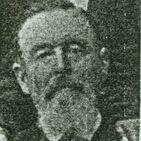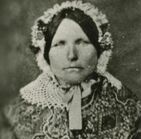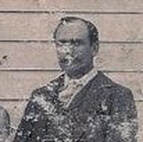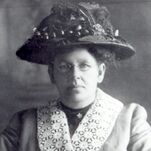|
Full disclosure: I 100% stole the idea for this post from Michael John Neill, the man behind the always excellent Genealogy Tip of the Day. He recently wrote a blog post titled "My Boring Ancestors", in which he summarized a few quick and anything-but-boring stories he's learned about his ancestors, and it struck a chord. I admit, I was a bit disappointed when I first started researching my family history back in 2005. While I had no idea what my background really was, I had heard many a grand tale that had been passed down through the generations...all of which almost immediately proved false. Instead, it turned out that the majority of my ancestors were relatively poor farmers, tailors, and labourers from England, Scotland, Wales, and Germany. A handful were moderately successful merchants, fishermen, and businessmen. None of them seemed particularly interesting. And, unless you happen to have a direct relative of great fame or infamy, none of yours will either, at first. The truth is, most people who have ever existed lived fairly ordinary lives in terms of education, career, and hobbies. Most people were educated to the normal point for their era, had a job common for their time, and engaged in pretty standard activities. If you look only at the basic facts found on most genealogy sites, you are unlikely to find anything of much interest. It's only when you really start digging in to your history that you learn no family is boring. If I may offer a few choice examples:  William West, 1828-1908, 3rd great-grandfather William was a farmer from Kentucky. That's about all the census will tell you about him. William was also a man with the urge to travel, abandoning his young wife and child in order to do so. Determined to become a Methodist minister and "fight Mormonism", William ended up making and losing a fortune in the gold rush, and becoming a Mormon. He would go on to marry, have several children, take up a plural wife young enough to be his granddaughter, have a child with her, abandon her and keep the child, become a rancher and missionary, take his entire family to Canada, and help build log cabins in Mountain View.  Bathsheba Layton, 1812-1863, 5th great-grandmother Bathsheba came from a poor farming family and helped out by lace-making. Her brother Christopher's life far overshadows hers, if the history books are to be believed: he was a well-known Mormon Patriarch, founder of several towns, and infamous polygamist; she was a modest homemaker who never left her hometown in England. Yet, she bore a son out of wedlock and gave him her surname, greatly altering the course of our history. She raised him alone for a time, married a man several years her junior, had several more children, and though her parents, siblings, and nieces and nephews all converted to Mormonism and moved to the U.S. and Canada, she absolutely refused, dying a devout Christian in Bedfordshire, England.  Milton Hough, 1863-1927, 3rd great-grandfather Milton was born, and died, in Iowa, and was a carpenter for most of his life. He was also known as a great musician and penman, and apparently wrote and performed scores for local theatre productions. His nephew, Earl, and his grandson, Clarence, were both raised as the adopted sons of his brother, Oliver, and Oliver's wife, Mattie. There's obviously a fascinating story there that I've yet to entirely uncover.  Mary Taylor, 18??-1931, 3rd great-grandmother I've written about Mary before, but I just can't resist writing about her again. On paper, she was just a girl born in England, who, like many others of her time, found herself in the U.S., then Canada, part of a Mormon migration. She got married, she had several kids, she lived on a farm for many of her 6-ish decades on Earth. She also either didn't know how old she was, or lied about it for whatever reason (she personally reported her year of birth as anywhere between 1866 and 1871, and neither of those are likely accurate), and didn't know her nationality (or, again, lied about it for reasons unknown - she claimed she was Scottish, even though her mother was English and her father was Irish). She came to the U.S. at a young age, apparently alone, and lived with her uncle who would subsequently introduce her to the aforementioned William West. She would have a child with him, be abandoned by him, leave the Mormon church, develop tuberculosis, become addicted to morphine, help run a boarding house, meet her husband Henry, regain her health, and start a new family...all before her 30th birthday, even using her earliest given year of birth. These are just a few of my "boring" ancestors. Ancestors who, on paper, were just small-town farmers, carpenters, lace-makers, and boarding house staff. Ancestors who lived in rural Europe and North America. Ancestors that literally no one has ever heard of. And yet, they all have a fascinating story to tell. They were musicians, writers, single-mothers when such a thing was unheard of, and hushed secrets. They were quiet (and loud) resisters, soldiers on both the wrong and right side of history, criminals, and missionaries. They were tradition-bucking outliers and easily persuaded sheep. They had secret children, secret lovers, secret spouses.
They were many things, but not one of them was boring. If there is one piece of advice I could give to anyone just starting out it would be...well, it would be to source everything. But if I could throw in a second piece of advice, it would be to always dig deeper. Birth, death, and marriage certificates aren't going to give you much more than some basic facts. Census records may provide a little insight, but likely won't provide much of interest. If you really want to get to know your family, you need to do the work. Search for their diaries (you'd be amazed how many of them kept one, and how many of their ancestors later published them), look them up in newspaper archives, insist on finding their obituaries. Google their name, look up possible images of them (seriously - you may think your ancestors have no online presence, but I'll bet you a dollar they do). Awkward as it may be, interview your living relatives - these are living, breathing people who can offer first-hand stories about your ancestors. Go to the library; ask about books that may feature your familial surname(s). Once upon a time, I thought my family was boring. Now, I am perpetually blown away by the fascinating lives these seemingly simple people lived. A little digging, a little commitment, and a little luck have taught me that if one thing is for certain, there are no boring families.
0 Comments
Leave a Reply. |
 RSS Feed
RSS Feed
